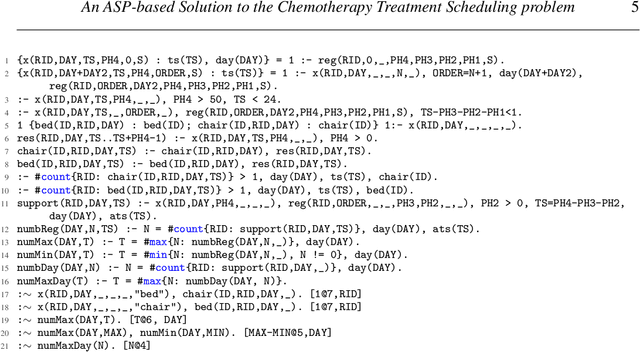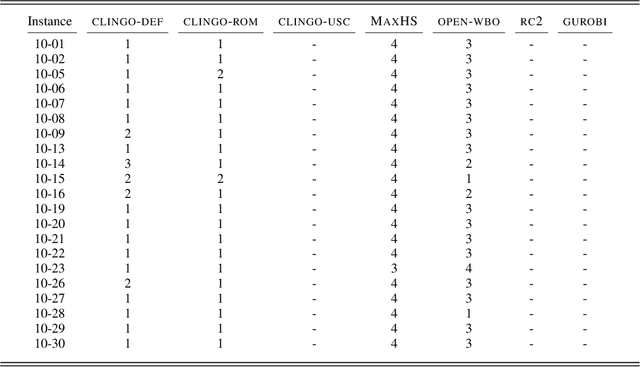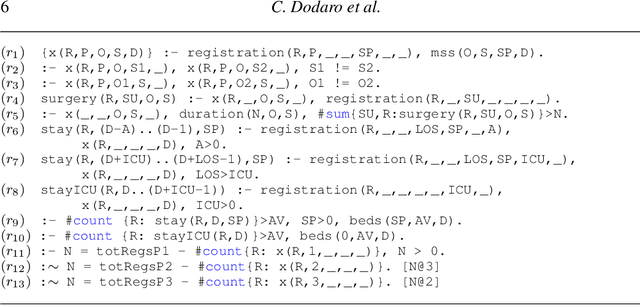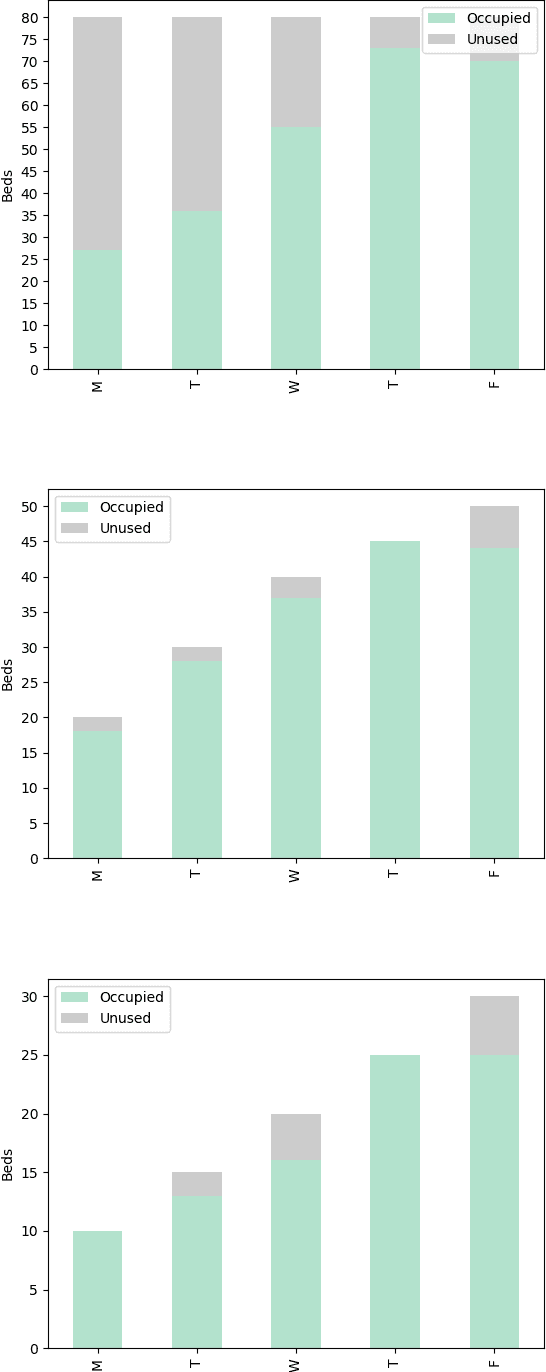Giuseppe Galatà
Improving ASP-based ORS Schedules through Machine Learning Predictions
Jul 22, 2025Abstract:The Operating Room Scheduling (ORS) problem deals with the optimization of daily operating room surgery schedules. It is a challenging problem subject to many constraints, like to determine the starting time of different surgeries and allocating the required resources, including the availability of beds in different department units. Recently, solutions to this problem based on Answer Set Programming (ASP) have been delivered. Such solutions are overall satisfying but, when applied to real data, they can currently only verify whether the encoding aligns with the actual data and, at most, suggest alternative schedules that could have been computed. As a consequence, it is not currently possible to generate provisional schedules. Furthermore, the resulting schedules are not always robust. In this paper, we integrate inductive and deductive techniques for solving these issues. We first employ machine learning algorithms to predict the surgery duration, from historical data, to compute provisional schedules. Then, we consider the confidence of such predictions as an additional input to our problem and update the encoding correspondingly in order to compute more robust schedules. Results on historical data from the ASL1 Liguria in Italy confirm the viability of our integration. Under consideration in Theory and Practice of Logic Programming (TPLP).
An ASP-based Solution to the Chemotherapy Treatment Scheduling problem
Aug 25, 2021



Abstract:The problem of scheduling chemotherapy treatments in oncology clinics is a complex problem, given that the solution has to satisfy (as much as possible) several requirements such as the cyclic nature of chemotherapy treatment plans, maintaining a constant number of patients, and the availability of resources, e.g., treatment time, nurses, and drugs. At the same time, realizing a satisfying schedule is of upmost importance for obtaining the best health outcomes. In this paper we first consider a specific instance of the problem which is employed in the San Martino Hospital in Genova, Italy, and present a solution to the problem based on Answer Set Programming (ASP). Then, we enrich the problem and the related ASP encoding considering further features often employed in other hospitals, desirable also in S. Martino, and/or considered in related papers. Results of an experimental analysis, conducted on the real data provided by the San Martino Hospital, show that ASP is an effective solving methodology also for this important scheduling problem. Under consideration for acceptance in TPLP.
Operating Room (Re)Scheduling with Bed Management via ASP
May 05, 2021



Abstract:The Operating Room Scheduling (ORS) problem is the task of assigning patients to operating rooms, taking into account different specialties, lengths and priority scores of each planned surgery, operating room session durations, and the availability of beds for the entire length of stay both in the Intensive Care Unit and in the wards. A proper solution to the ORS problem is of primary importance for the healthcare service quality and the satisfaction of patients in hospital environments. In this paper we first present a solution to the problem based on Answer Set Programming (ASP). The solution is tested on benchmarks with realistic sizes and parameters, on three scenarios for the target length on 5-day scheduling, common in small-medium sized hospitals, and results show that ASP is a suitable solving methodology for the ORS problem in such setting. Then, we also performed a scalability analysis on the schedule length up to 15 days, which still shows the suitability of our solution also on longer plan horizons. Moreover, we also present an ASP solution for the rescheduling problem, i.e. when the off-line schedule cannot be completed for some reason. Finally, we introduce a web framework for managing ORS problems via ASP that allows a user to insert the main parameters of the problem, solve a specific instance, and show results graphically in real-time. Under consideration in Theory and Practice of Logic Programming (TPLP).
 Add to Chrome
Add to Chrome Add to Firefox
Add to Firefox Add to Edge
Add to Edge